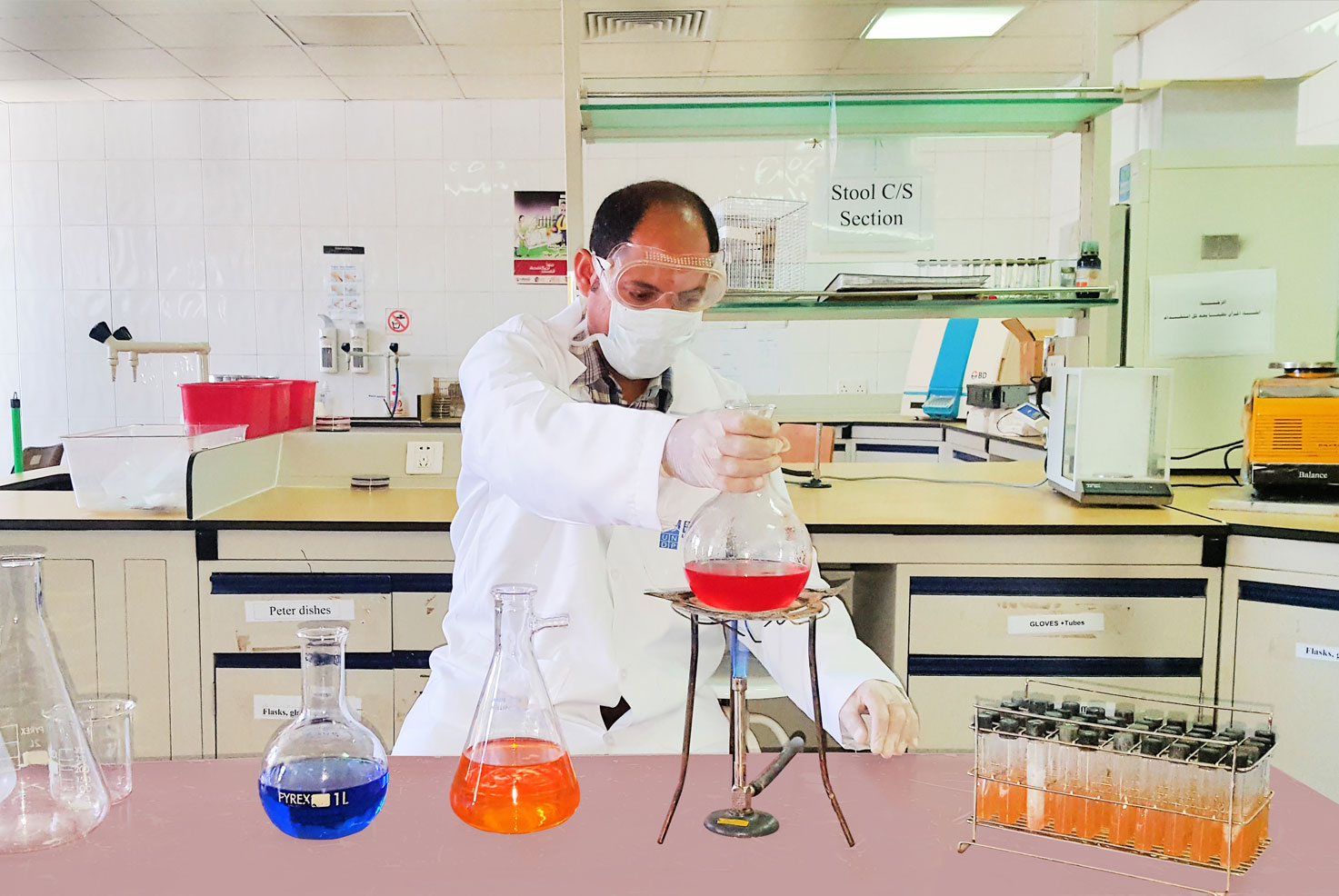Laboratory Medicine role
The role of medical laboratories in health institutions
Medical laboratories play an important role within the medical and therapeutic facilities and have an important role in the medical system to serve the patient. The importance of medical laboratories in the following points:
Laboratories have an important role in assisting the doctor in selecting or determining the appropriate diagnosis of a particular disease from the list of required diagnoses and then give appropriate treatment to the patient who contributes to its improvement and recovery.
Laboratories have an important role in helping the doctor to prove a clinical diagnosis of a particular medical condition.
Laboratories have an important role in assessing and monitoring the degree of change in a disease.
monitoring the concentration of some components of the body, such as salts during treatment with fluids or monitor the level of the impact of a particular drug, such as measuring blood sugar (glucose) while giving the diabetic insulin treatment.
Laboratories have an important role in the discovery of diseases and epidemics and follow-up development and spread in a region, and help through tests and tests in the control and control of those diseases and epidemics.
Medical laboratories provide a service for medical scientific research through conducting medical tests and examinations and provide important data, statistics and results useful in research related to diseases and their development.
Given the importance of what medical laboratories do, the medical laboratories in the world always strive to give accurate and accurate analytical results and to demonstrate the level of accuracy and health that characterizes their results. And orderly.
These are the most important ways to obtain reliable results and a high degree of credibility and provide the best service to the patient.The laboratory is the place or facility where experiments and various scientific researches are carried out. The laboratories play an important role in the service of science and human life. Medical laboratories, they are also used in the production of some drugs and medical drugs, and laboratories may be in many different places such as universities, schools, colleges, institutes, hospitals, scientific research centers and pharmaceutical and food factories, as they are found in many government departments Three customs offices and police stations.
Quality standards in laboratories:
The aim of the laboratory tests and tests is to provide accurate and correct results, through the application of a quality assurance system as the quality control programs evaluate the validity of the results, and laboratories to provide general requirements for efficiency in accordance with international standards ISO IEC 17025.
Quality standards in medical laboratories:
- Get accurate analysis results.
- The patient is satisfied with the services provided by the laboratory.
- Follow the safety and prevention standards, especially in the Department of Hematology, in order to prevent the transmission of diseases to workers, and patients who conduct medical tests.
- Cleanliness of the laboratory and the use of medical gloves, especially when drawing blood samples from patients.
- Label on each sample, bearing the patient ‘s name, type of sample, and examination to be performed.
- Use correct scientific methods in conducting analyses.



